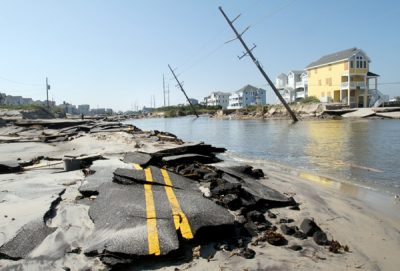A new study shows the upward trend in economic losses from hurricanes is consistent with global warming’s influence on the number and intensity of hurricanes.

The study published online in Nature Geoscience concludes the rise in U.S. economic losses cannot be explained by the commonly cited increases in vulnerability and exposure. Rather the influence of climate change may have accounted for 2-12 percent of the U.S. hurricane losses in 2005.
Supporter Spotlight
Economic losses from natural disasters, and in particular hurricanes, have risen over the past decades. However, whether these increases are caused by socioeconomic factors, such as increases in wealth and population in coastal regions that are vulnerable to hurricanes, or by an increase in extreme weather events, has been contentious.
Using a statistical approach that minimizes the risk of introducing artificial trends, Francisco Estrada and co-authors estimate the contribution of socioeconomic factors to the observed rise in economic losses from hurricanes in the U.S. between 1990 and 2005. They find that part of the trend cannot be explained by commonly used socioeconomic factors, but is consistent with an increase in the number and intensity of loss-generating cyclones that hit the country, possibly as a result of global warming.
The authors estimate that $2-14 billion of U.S. hurricane losses incurred in 2005 may be attributable to climate change.






